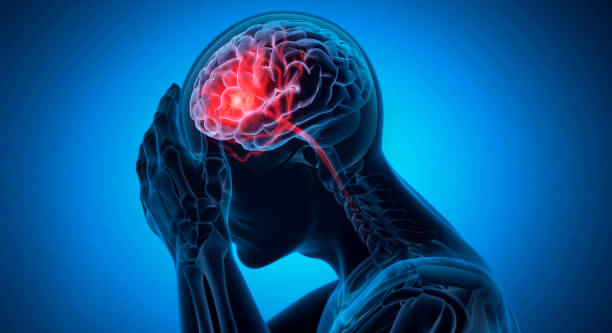Mental health has become a vital topic in today’s fast-paced world, where stress seems to be an unavoidable part of daily life. But have you ever wondered what actually happens inside your brain when you feel stressed? Understanding the science behind mental health and stress responses can empower you to manage your well-being better. In this article, we’ll explore how your brain reacts to stress, the impact on mental health, and strategies to protect your mind.
What Happens in Your Brain When You’re Stressed?
Stress is the body’s natural reaction to any demand or threat, whether physical, emotional, or environmental. When you encounter a stressful situation, your brain activates a complex system to help you respond — commonly known as the “fight or flight” response.
The Role of the Amygdala and Hypothalamus
At the center of this response is the amygdala, the brain’s emotional processing hub. The amygdala detects threats and sends distress signals to the hypothalamus, which acts as the command center to activate the stress response system.
The hypothalamus triggers the release of stress hormones such as cortisol and adrenaline from the adrenal glands. These hormones prepare your body to react by increasing heart rate, blood pressure, and energy supply — all necessary for quick action.
The HPA Axis: Brain’s Stress Regulator
This chain of reactions is known as the Hypothalamic-Pituitary-Adrenal (HPA) axis. It plays a crucial role in regulating how your body handles stress. When functioning properly, the HPA axis helps you adapt to stressors and return your body to a calm state once the threat passes.
However, chronic or excessive stress can dysregulate this system, leading to prolonged exposure to high cortisol levels, which may negatively affect brain function and mental health.
How Chronic Stress Affects Mental Health
While short-term stress can be beneficial by enhancing focus and performance, chronic stress can have detrimental effects on your brain and overall mental well-being.
Impact on the Hippocampus and Memory
The hippocampus is a part of the brain responsible for memory and learning. Excess cortisol from prolonged stress can shrink the hippocampus, impairing memory, emotional regulation, and the ability to cope with future stressors.
Anxiety, Depression, and Neurochemical Imbalance
Chronic stress disrupts the balance of neurotransmitters — chemicals like serotonin, dopamine, and norepinephrine that regulate mood and emotions. This imbalance increases the risk of developing anxiety disorders, depression, and other mental health conditions.
Physical Health Consequences
Stress doesn’t just affect the brain; it impacts your entire body. High stress levels can lead to inflammation, weaken your immune system, and increase the risk of chronic illnesses like heart disease and diabetes, further complicating mental health.
Signs Your Brain is Overwhelmed by Stress
Recognizing when stress is affecting your mental health is essential. Common signs include:
- Difficulty concentrating or memory problems
- Irritability or mood swings
- Persistent feelings of anxiety or sadness
- Sleep disturbances like insomnia or restless sleep
- Physical symptoms such as headaches or muscle tension
If these symptoms persist, it’s important to seek professional help to prevent further deterioration of your mental health.
Practical Strategies to Manage Stress and Support Brain Health
Thankfully, there are many effective ways to reduce stress and protect your brain’s mental health:
1. Mindfulness and Meditation
Practicing mindfulness meditation helps calm the amygdala, reducing stress hormone release. Regular meditation improves emotional resilience and cognitive function.
2. Regular Physical Exercise
Exercise promotes the production of endorphins, natural mood lifters, and supports healthy brain plasticity. It also reduces cortisol levels, helping your brain recover from stress.
3. Healthy Sleep Patterns
Quality sleep is critical for brain repair and memory consolidation. Establishing consistent sleep routines can regulate your HPA axis and improve mental health.
4. Balanced Nutrition
A diet rich in omega-3 fatty acids, antioxidants, and vitamins supports neurotransmitter production and reduces brain inflammation.
5. Social Connection and Support
Building strong social relationships provides emotional support, helping your brain regulate stress responses more effectively.
6. Professional Therapy and Counseling
Cognitive-behavioral therapy (CBT) and other therapeutic approaches can reframe negative thinking patterns and improve coping mechanisms.
The Future of Mental Health: Integrating Science and Care
Advances in neuroscience are continuously improving our understanding of how stress impacts the brain and mental health. This knowledge is guiding new treatments and preventative strategies to enhance brain resilience and overall well-being.
Integrating these scientific insights with personalized care offers hope for individuals struggling with stress-related mental health issues.
Final Thoughts
Your brain’s response to stress is a powerful survival mechanism but can become harmful if left unchecked. By understanding the science behind mental health and stress, you can take proactive steps to nurture your brain, reduce stress, and foster lasting well-being. Remember, mental health is just as important as physical health—treat it with the care it deserves.

